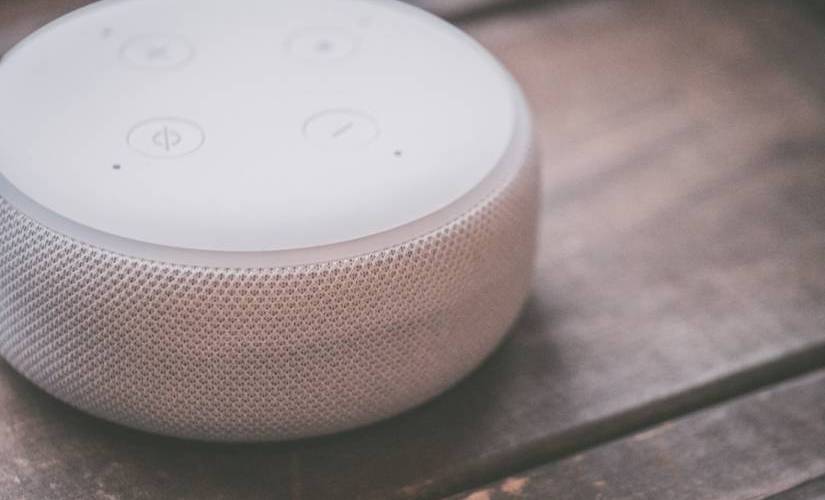The idea of talking to a machine a few decades ago would have belonged to the realm of science fiction, if not idiocy. And yet, after years of rigorous multidisciplinary research and development, here we are. A future where millions of users command and interact with a growing number of devices using nothing but their voice. All thanks to cutting-edge voice recognition technology.
3 Reasons Why Voice Recognition Will Change Our Lives
Voice recognition has seen a great deal of development in recent years. Smartphones and smart speakers housing AI-based virtual assistants have become a common sight in every household. I distinctly remember trying out the Google Assistant and Microsoft’s Cortana back in the day when they were initially rolled out.
Apart from a few oddly surprising but clearly pre-programmed jokes, the speech recognition itself was fairly inaccurate and frustrating. The conversations weren’t organic. One would have to speak with deliberation, adding long pauses and clear punctuations.
All in all, it was a gimmicky-looking feature at best. Enough to stimulate your typical tech nerd but nowhere even close to becoming an everyday technology.

Fast forward to today, and cutting-edge algorithms can beat any of us at language processing.
Add to that the program’s ability to draw from various sources and languages across the internet, and the conversation is really over. However, it is impossible to ignore the breathtaking rate at which language recognition has evolved in the past few decades.
And much like smartphones and the internet, voice recognition is quickly becoming an essential and indispensable part of our lives. Therefore, it might be worth investigating what a world populated with sophisticated voice recognition algorithms might look like; and how they’ll change our lives.
Voice Recognition can Trigger a Multi-Industry Disruption, Empowering SMBs and Tech Giants Alike
The most significant benefit of being able to talk to your devices is that it is much more convenient than using a computer or a smartphone. Given this advantage, we expect voice recognition to improve the communication between brands and customers in the coming future. This will allow for a greater degree of personalization and increased customer satisfaction.
And this is already happening. Google reports that around 58% of the people who own voice-activated speakers use them to create and manage shopping lists. And around 62% of the same are willing to buy products via their speaker.
Industries like e-commerce stand to benefit the most from such a transition. Especially when smart speakers can help with reducing buying resistance for the customers. In light of such positive trends, it is obvious that voice search is changing the way we shop.
But beyond just shopping, sectors like healthcare and education also benefit immensely from voice recognition technology. Alexa is helping out senior dementia patients, while Google Assistant can help enhance learning for young kids. These are just some select examples, but they indicate a growing trend most industries are catching up on.
How Voice Recognition will take over the consumer market
Apple, Google, and Amazon (along with a few other smaller players) have been relentlessly pouring millions into research and development for application and home-based virtual assistants. It’s no secret that voice will be a massive business opportunity for these giants, hence the aggressive competition.
We don’t know how Big Tech will monetize voice recognition, but their involvement will benefit the industry for sure. As tech companies continue to develop voice technology further, we can expect voice-based devices to get better over time. We’ll see a significant improvement in the pricing, functionality, and even accessibility of these devices. With the improvement curve being an exponential one, following the development curve closely.
Such rapid growth will likely sprout multiple opportunities for voice recognition, many even within previously untapped niches and industries. Smaller software and app development companies will be incentivized to build on the shoulders of these tech giants. They’ll develop their products and service based on the underlying voice recognition architecture built by bigger companies. Allowing for drastic improvements in areas like customer experience and usability for their products.
It’s a win-win for both. Smaller players get access to sophisticated voice recognition technology, something they couldn’t develop on their own. And larger players get an ever-increasing market share by opening up their technology. This will inevitably boost voice adoption and allow the technology to penetrate deeper within the consumer market.
To conclude, voice recognition will soon be empowering a growing number of industries. The estimated market size for voice recognition-based tech and devices is expected to reach around $27.16 Billion by 2026. With such promising figures and groundbreaking implications, voice recognition is sure to take over the consumer market in the coming years.
Rethinking our Privacy in the Age of Virtual Assistants
Voice recognition has a ton of potential. It can significantly enhance business operations, improve consumer-device interaction, and carry the machine-human relationship to a whole new level.
However, behind all the hype lies a glaring but ugly problem, most of us are too afraid to admit. I’m talking about privacy.
Around 50% of smart speaker users fear that voice technology places their privacy at risk. On one level, there is always the risk of cyber-attacks and data breaches. And brands are trying to address this by developing devices that do much of the voice recognition locally. This is to prevent any data from being transferred over to the cloud. But on a deeper level, we face the problem of accidentally installing corporate spyware right into our homes.
It’s no secret that tech companies are behind every bit of data and personal information we produce. While harvesting data to roll out personalized ads may not be unethical in itself, there is certainly a line that needs to be drawn here. To be clear, smart speakers aren’t recording your everyday conversations (yet). But they still need to be ‘awake’ looking out for the trigger words that wake them up.
Again, the problem here isn’t that amazon employees are listening to your dinner table conversations; but instead of ‘privacy expectation.’
What is Privacy Expectation?
Privacy expectations, in simple terms, is the level of privacy consumers can expect from companies while using their products and services.
And new technologies, especially something like smart speakers and virtual assistants, generally tend to lower down our privacy expectations. In other words, they make us comfortable with sharing a growing amount of data as we get familiar with the technology.
At the risk of sounding like a conspiracy theorist, I’m not arguing that voice recognition (in its current form at least) is a major threat to our privacy. In fact, most companies in the business are reasonably compliant to privacy laws; and whatever audio samples that companies do record are primarily used for training the algorithms.
But the problem here is that voice recognition is significantly different from other data-harvesting technologies because it shifts the privacy paradigm much further towards the companies and away from the consumers. For example, with social media, tech companies only had access to the data that users were willing to publish online.
While with something like smart speakers, if companies choose to track us in the future, the option of choosing the information we wish to share (and not share) is simply absent. We run the risk of opening our entire lives to algorithms that’ll scan every word we utter with the sole intent of getting us to buy a pair of socks or something.
A new Privacy Paradigm
Bear in mind, though, that this is entirely a hypothetical possibility. But the fact that corporations haven’t done it yet, isn’t sufficient evidence to believe that they won’t do it in the future. After all, Companies need to make money from the smart speakers they sell, especially when they are practically giving them away for free. And the way they’ll make up for it is by locking the users in their ecosystems and targeting them with voice-based ads.
With every breakthrough device/technology, consumers are willing to trade in a bit more of their information and privacy in exchange for a better experience and service. Voice technology takes it to a whole new level because the data we are talking about here isn’t digital but biometric. No other consumer technology in the past has opened up such large volumes of biometric data to algorithms, and the implications of doing so can go way beyond our wildest speculations.
Is this alarming? Yes. Does that mean that voice recognition will spell an end to our privacy? Most likely not. The takeaway here is that voice recognition will trigger a new conversation around privacy. Consumers will have to be ever more vigilant about who collects their data and how it is used. And businesses will have to be more transparent and consumer-centric with their privacy policy. Ultimately, wide-scale adoption of voice technology will certainly shift our current privacy paradigm.
How Voice Recognition Will Change Who We Are.
The interesting thing about conversing with a smart speaker is that it’s not the same as how we usually communicate. Everyday conversations are full of several subtleties like body language cues, facial expressions, and interpersonal chemistry—stuff that’s simply absent in a smart speaker.
More than that, smart speakers are designed to be ‘smart’; coupled with the internet, they are practically omniscient and considerably more engaging and entertaining than other humans. Is it plausible then that interacting with my amazon echo could change the way I communicate?
Could it inflate my expectations when it comes to conversations? Leaving me dissatisfied and thus, less interested in talking to other people. I know that sounds far-fetched, but if video games can change our brains and texting can change our language, why is it a stretch to assume that voice recognition can change how we communicate?
Voice-based virtual assistants are expected to do well in areas like education and even therapy. These are places that were traditionally thought to be the forte of humans. But it isn’t just the assistant’s universality that is fascinating here, but also its personality. Alexa isn’t just an assistant. It’s no longer just a tool, but with every patch and update, as its engineers strive to make its responses look more organic, Alexa slowly gains personhood.
That opens a brand new can of worms. We pass on a whole lot of power over to our assistants (and by extension, the companies that control them) the day we start treating them like people and not machines. And although that makes a great science-fiction plot, we must admit that such a future is much closer than it appears.
Voice recognition and AI
Consider the example of Replika. Replika is a chatbot app marketed as ‘the companion who cares.’ I discovered Replika from the Youtube comment section of a music video. It turns out when users expressed that they felt lonely, Replica recommended them a music video to make them feel better. And it seems like it worked. The comments section is teaming with warm messages and love letters directed to Replika as people express their gratitude towards the AI.
And Replika is just a chatbot, a good one I bet, but still a chatbot. Imagine then what fully flushed out voice assistants—programmed with a natural-sounding human voice and empathy—could do.
If virtual assistants and chatbots can promote music to their loyal users, they can just as easily promote products or ideas. Don’t get me wrong, It’s fine as long as our Personal AIs tell us silly jokes and offer trivial recommendations. But the fun quickly ends the day they start telling us what is true or who to vote for. Bear in mind that the distance between the two is alarmingly short and constantly shrinking. Again, if social media can impact our political views, why can’t voice assistants?
I admit these are some extreme examples. And I do not wish to indicate that the voice assistants are inherently bad or evil. My only claim here is that voice recognition can fundamentally change not just the digital-human interface but also our everyday lives.
As we get comfortable with using voice just as much as we use our screens, we might also end up getting comfortable with trusting algorithms just as much as we trust people. Voice recognition is the humanization of our machines at its finest.
In Conclusion
Voice recognition is an upcoming groundbreaking technology with far-reaching implications, especially in contrast with its initial use cases. And while it can be alarming to witness Tech giants racing for an oligopoly within the sector, the presence of reliable free and open-source voice recognition alternatives is certainly assuring.
In the coming years, we can expect voice-powered devices to improve our business as well as personal experiences. Having meaningful conversations with our computers will no longer be science fiction. Wide-scale voice adoption will compel us to think deeply about areas like privacy and the influence of technology on our lives.
It’s an exciting future full of ecstatic adventures and unexpected dangers. And although we may not know where voice recognition might take us, we can at least know for sure that it’ll change the world as we know it today.
Image Credit: jessica lewis; pexels; thank you!





